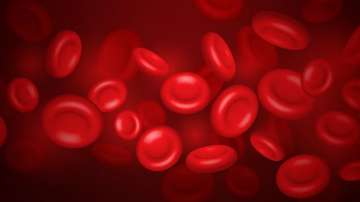Thick blood or hypercoagulability can result from conditions that affect blood clotting, such as polycythemia vera. Medication and lifestyle choices can help reduce the risk of blood clots and other complications. When blood is thick, it can hinder the movement of oxygen, hormones, and nutrients throughout the body, preventing them from reaching tissues and cells. This can cause low oxygen levels in the cells and lead to hormonal and nutritional deficiencies.
Symptoms of thick blood
Many don’t have any symptoms of thick blood until they experience a blood clot. The blood clot usually occurs in a person’s vein, which can cause pain and affect circulation in and around the area where the clot occurs. Some of the symptoms include
- Excessive menstrual bleeding
- Dizziness
- Blurred vision
- Easy bruising
- Headache
- High blood pressure
- Itching skin
- Lack of energy
- Shortness of breath
Here are some home remedies for blood thinning
1. Ginger
Ginger also contains salicylate and has anti-inflammatory properties that can prevent blood clotting. Acetylsalicylic acid, which is used to prepare medicine, is synthetically derived from salicylate. It can help prevent stroke and heart attack.
2. Turmeric
The active compound present in turmeric known as curcumin works on the blood platelets to prevent clots. Its medicinal properties can also help in curing the pain caused due to the formation of clots.
3. Garlic
Garlic has sulphur compounds that are known to melt blood clots. Consume one raw garlic clove in the morning for effective results. Garlic works on the smooth muscles of the arteries and causes them to relax and dilate, thereby lowering blood pressure.
4. Cinnamon
Cinnamon contains coumarin, a powerful blood-thinning agent. Warfarin, a commonly used blood-thinning drug, is derived from coumarin. Chinese cassia cinnamon contains a much higher coumarin content than Ceylon cinnamon, according to 2012 Pharmacognosy Research. However, taking coumarin-rich cinnamon on a long-term basis can cause liver damage.
5. Flax Seeds and Chia Seeds
These tiny seeds are full of healthy omega-3 fatty acids that help in preventing blood clots and improve blood circulation. Flaxseeds are said to make platelets, the blood cells involved in clotting, less sticky. In fact, these seeds may reduce the risk of hardening the arteries. Chia seeds are known to be natural blood thinners. They come packed with essential nutrients, especially omega-3 fatty acids that are good for the heart.
Disclaimer: Tips and suggestions mentioned in the article are for general information purpose only and should not be taken as professional medical advice. Please consult a doctor before starting any fitness regime or medical advice.
Also Read: Importance of having a plant-based diet and active nutrients in them
Also Read: Cold and cough or fungal sinusitis? Know how to spot the symptoms
